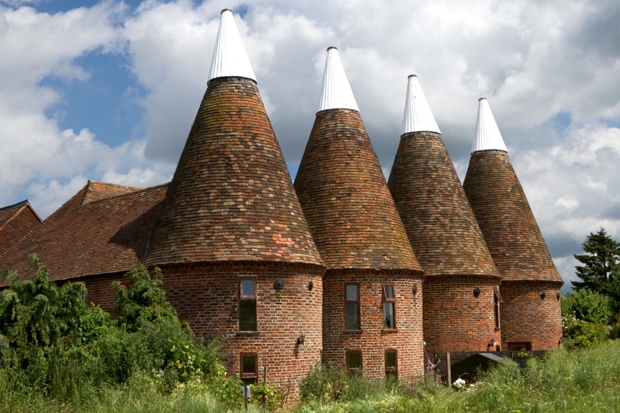Apart from the Wye Valley, where I grew up, there are only two places in Britain I’d consider living: Kent and Essex. Since Kent grabbed the ‘Garden of England’ moniker, it’s generally considered the posher of the two, but in reality the two counties are mirror images of each other: in the words of one travel writer, the Medway towns are ‘where you take your northern friends when they claim that southerners are soft’. In both places it is possible to drive through an idyllic medieval village and two miles later find yourself at a KFC drive-thru which is open until two in the morning (I like both).
I now live near Sevenoaks — a town so rich that you reach it by exiting the M25 from the fast lane — but in time I’d like to move east. This is partly because east Kent has some of the only sanely priced housing within reach of London, but also because of the huge gains you enjoy from having a large and massively able population of enterprising geezers, white van men and ‘blue-collar aristocrats’ around you. If you have a window that needs repairing or want a reconditioned fuel-pump for a 1988 Ford Mustang, you’ll find there are 20,000 people called Dave within a ten-mile radius who can sort you out at 8 a.m. tomorrow. Everybody is busy doing things.
The entrepreneurialism you find in Kent and Essex are widely derided, but they make the place an extraordinarily easy and agreeable place to live. Deal, which recently and deservedly won the Daily Telegraph’s ‘High Street of the Year’ award, has a business culture more like Brooklyn than Britain: there is a micropub (a Kent invention), a furniture shop which also serves tea, and a restaurant which charges £5 a year membership and which opens for only a few days a week — when it is usually packed.
This experimentation enriches not only the people who practise it but also the people who live around it. By contrast, visiting Scotland a few years ago during its 48-hour tourist season, we were turned away from a pizza restaurant at 7.30 p.m. because it had ‘run out of dough’. There the service culture seems not to have changed since Dr Johnson’s visit to a Scottish inn where ‘Of the provisions the negative catalogue was very copious. Here was no meat, no milk, no bread, no eggs, no wine. We did not express much satisfaction.’ To be wealthy, it is not enough to have money; you also need people who are sufficiently eager to relieve you of it.
Therefore the basis of a good tax system seems very simple. As far as possible, it should not discourage ordinary people from doing useful things. It has always struck me as odd that we tax people for working for quite modest sums, and yet do not tax people at all for inheriting money or making a profit on a house. So the Conservative idea of increasing the personal income tax allowance to £12,500 seems a good start. But why not go further — why not increase the personal allowance to £20,000?
How would you fund this? Very simple. You get rid of all tax relief on pension contributions, which currently costs £54 billion a year. If this relief is intended to be a nudge to encourage saving, it is a very ineffectual and expensive one. The only moral justification for it is that people with large pensions will eventually end up paying tax when they withdraw their savings. But with a much higher tax allowance for pensioners (along with everyone else) this argument no longer holds. The best way to redistribute wealth is to stop redistributing it upwards.
Rory Sutherland is vice-chairman of Ogilvy Group UK.







Comments